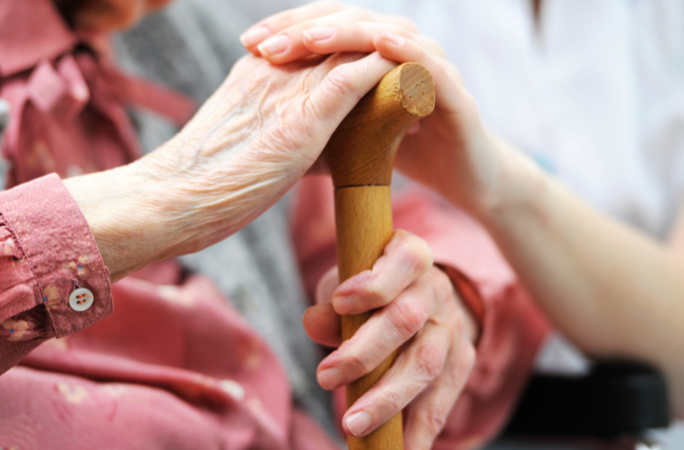Carers are some of the most generous and devoted people you could wish to meet. The number of UK carers is rising. In the UK, one in eight adults are carers and this equates to around 6.5 million people caring for someone who needs their help and support. The number is predicted to rise to 9 million by 2037.
Many carers become experts at putting others first and putting their own lives on hold, giving their unwavering love and care without a second thought. Despite this, many carers experience guilt when taking even a small break from their duties to do something for themselves. It’s known as carer’s guilt’ or ‘the guilt monster’ according to Alzheimer’s Society’s forum community. Much of the time it’s unwarranted, but most carers have probably experienced this feeling at some point.
I went through a long guilt trip when caring for my mother, who had vascular dementia. I juggled her care needs with a busy and stressful job. I visited her every weekend without fail, even if I felt unwell or tired, and called her every day. Whenever there was a problem that needed fixing, I would always take care of it, whether it meant finding a plumber to fix her washing machine, taking her for a hospital appointment or even taking her cat to the vets. When anything needed doing, I either did it myself or arranged for someone else I trusted to take care of it. Mum could count on me for anything. And she did.
But I still felt guilty that I wasn’t with her every day, even though I couldn’t afford to give up my job to care for her full-time. I felt guilty when I wasn’t with her, even when someone else was taking care of her. I felt guilty when leaving her after a long visit. I felt guilty if I went on holiday for a few days or went out for a meal with my husband. The guilt was all consuming at times.
Accept how you feel
So how do you deal with carer’s guilt? I personally feel that it’s one of those things you need to accept you’re going to feel from time to time, and then mentally try to move on. When I felt guilty, I used to tell myself that feeling this way was normal – and do what life coaches refer to sometimes as ‘parking’ the feeling.
When I felt guilty about having a rare night out, I also reminded myself that I was still doing my best for mum – even if I did occasionally need some time for myself. If you know that you are supporting that person and you have their best interests at heart, rather than your own, then you have nothing to feel guilty about.
I was often able to alleviate guilt by knowing I had made sure mum was being well cared for. Having a structure in place to ensure the person is safe before taking time out for you is crucial. It’s essential to make sure the person feels supported and isn’t struggling on their own when you’re not around. I realised early on that what mum needed and what I was able to provide didn’t match. She lived more than an hour away from me and I worked long hours. She needed daily care. So I knew I’d need to enlist extra help. I did my research thoroughly and built a support team around me whom I could trust to help look after mum. Close friends. Reliable and kind neighbours. Experienced care workers with a strong understanding of dementia. And I made sure they all knew where I was, how to reach me if something went wrong and what I would like them to do in an emergency or challenging situation if they were unable to reach me. It became an exercise in team management, which may sound cold, but that’s exactly what it was. And the only way for mum to be safe and me to stop worrying was to make sure that the situation was properly managed. This meant not trying to do it all on my own.
Good relationships
An expert from SweetTree Home Care Services recently told me that good care is all about relationships. My support crew consisted of people who each had a good relationship with my mum. They were people she trusted, people who not only performed certain tasks but were good company, keeping her entertained when I wasn’t there.
It’s worth remembering that being a better carer means taking care of ourselves. If you don’t take care of your own health and wellbeing, then you won’t be able to care for the person in the long-term. Taking care of you will make you a better carer; so taking a bit of time out now and then for some quick exercise will make a positive difference to how you feel and your mental and physical capacity to cope with being a carer.


)
)
)
)
)
)
)
)